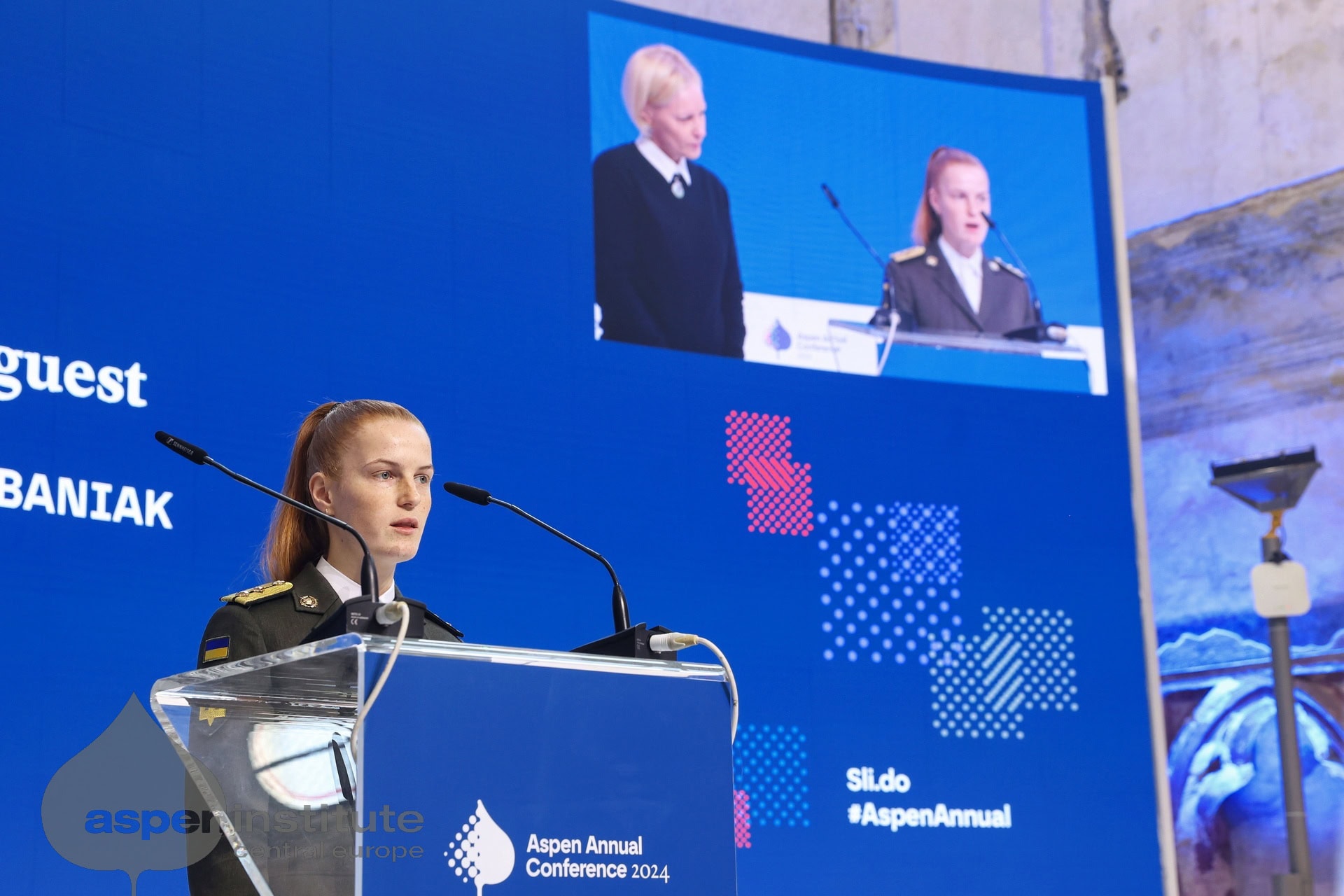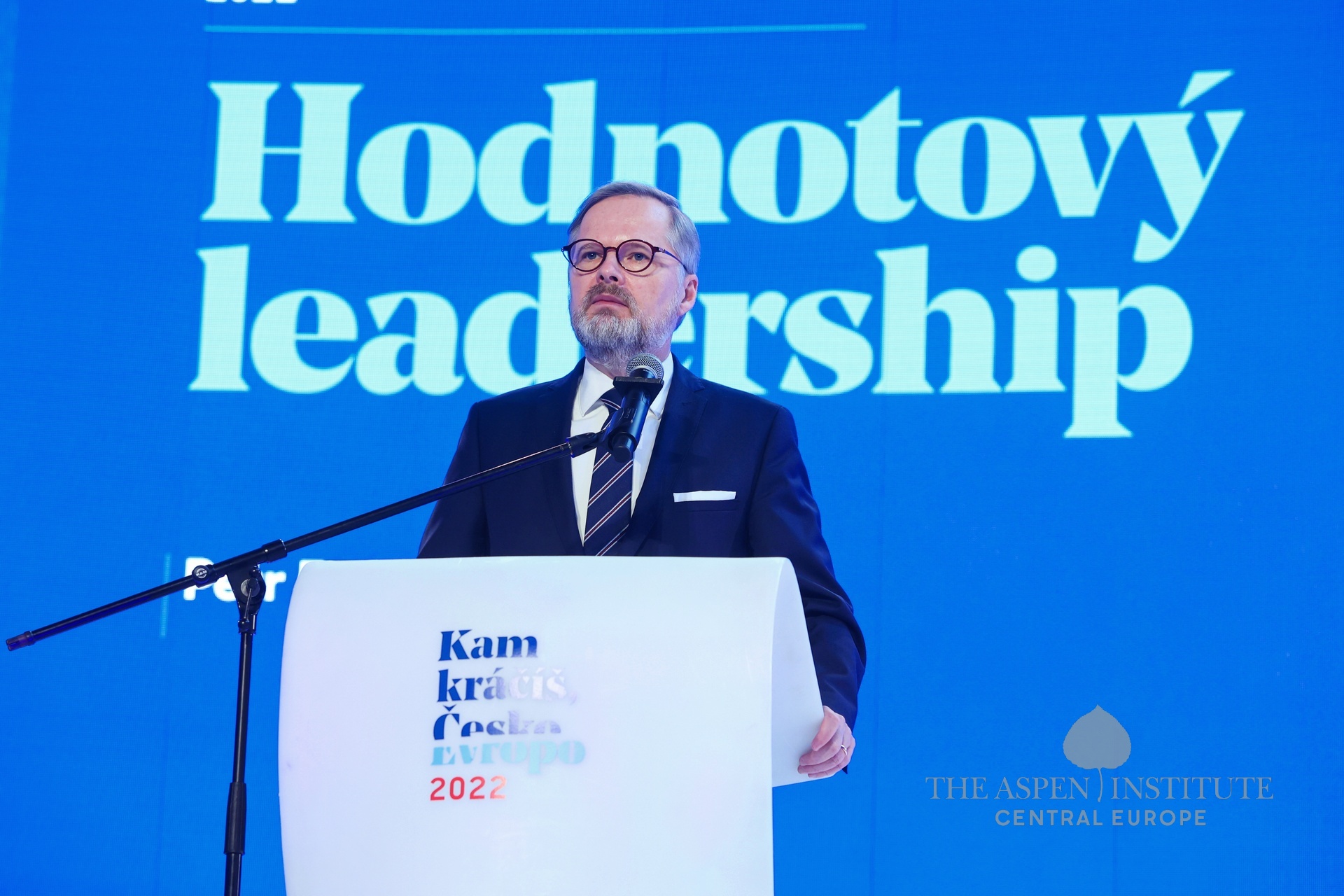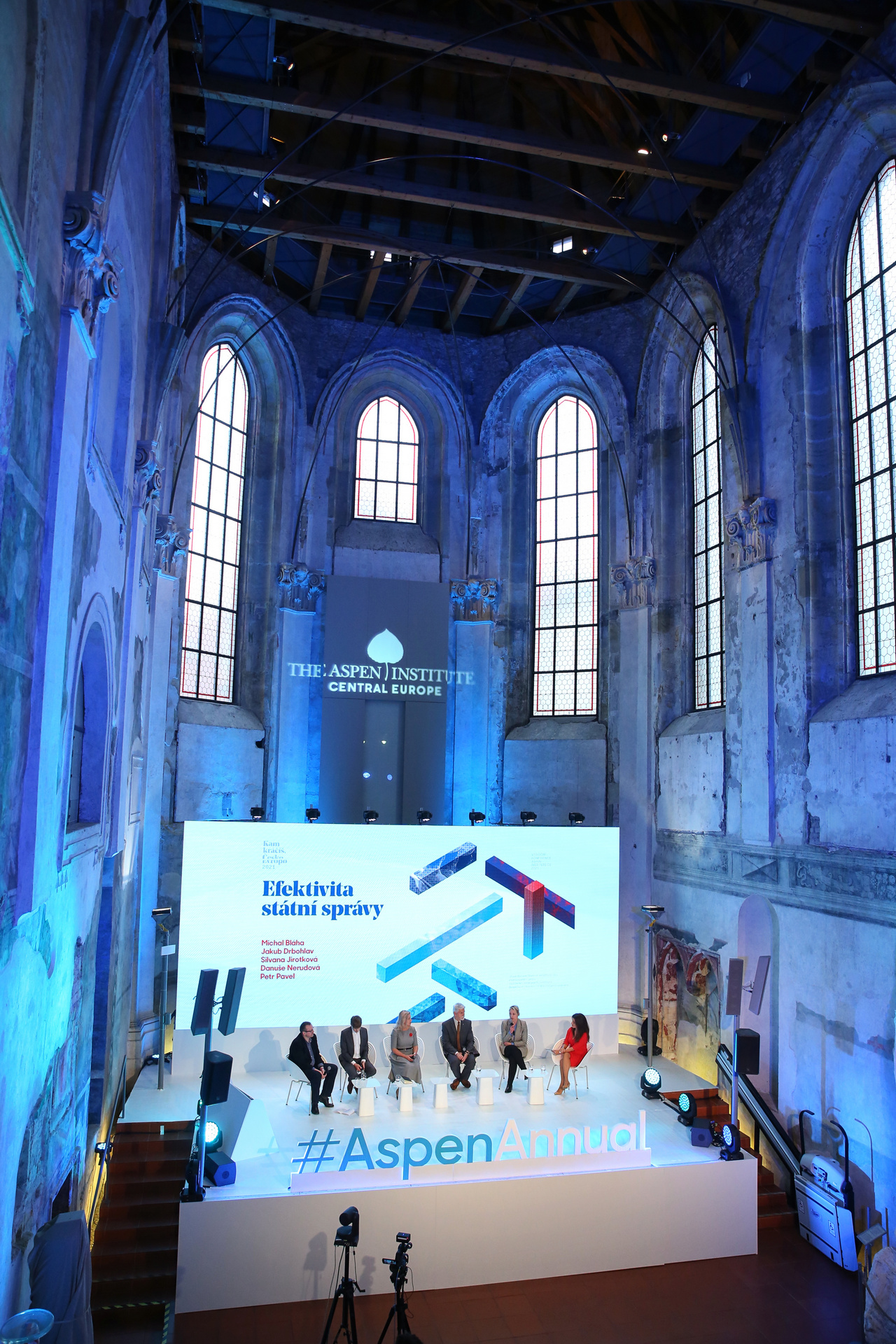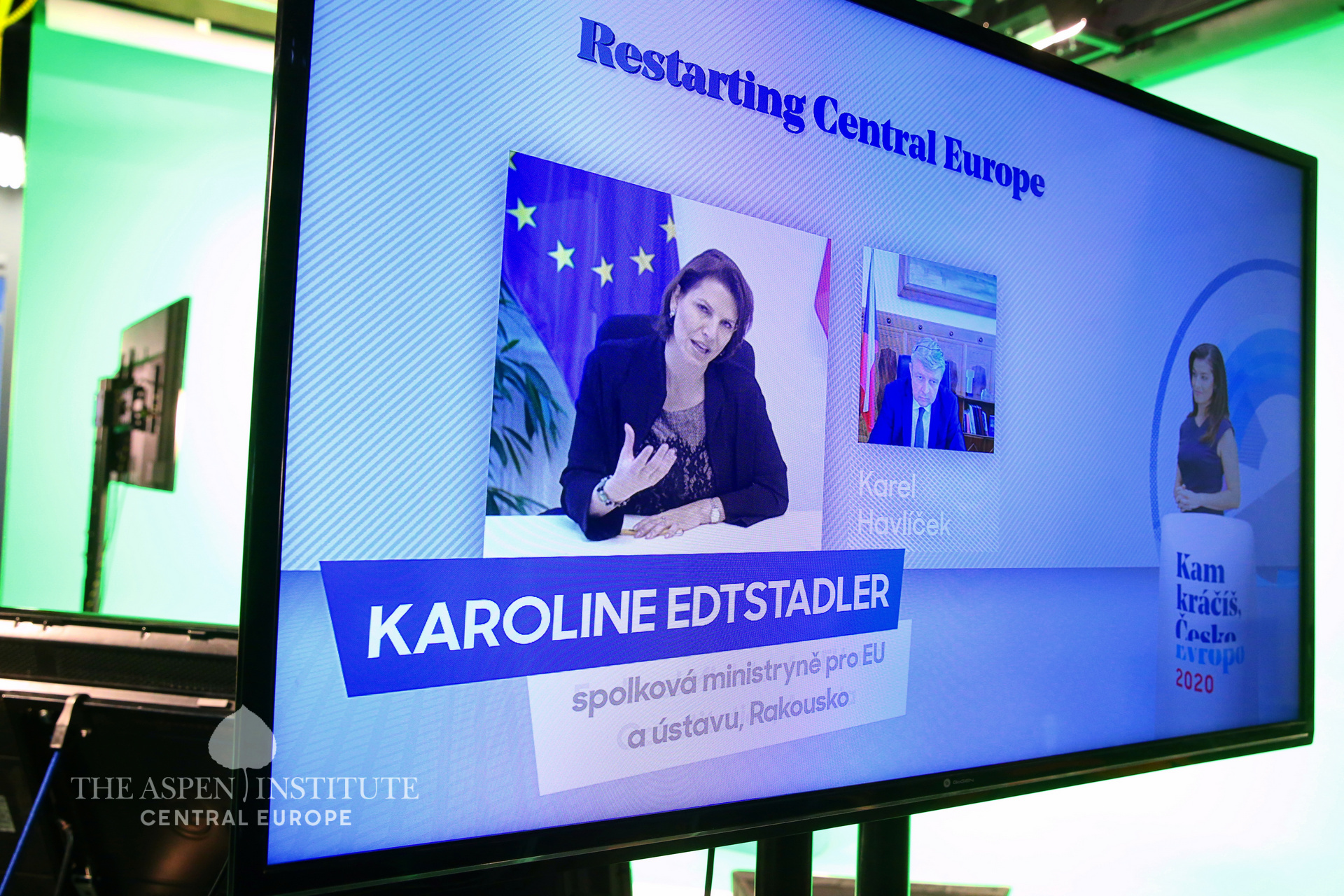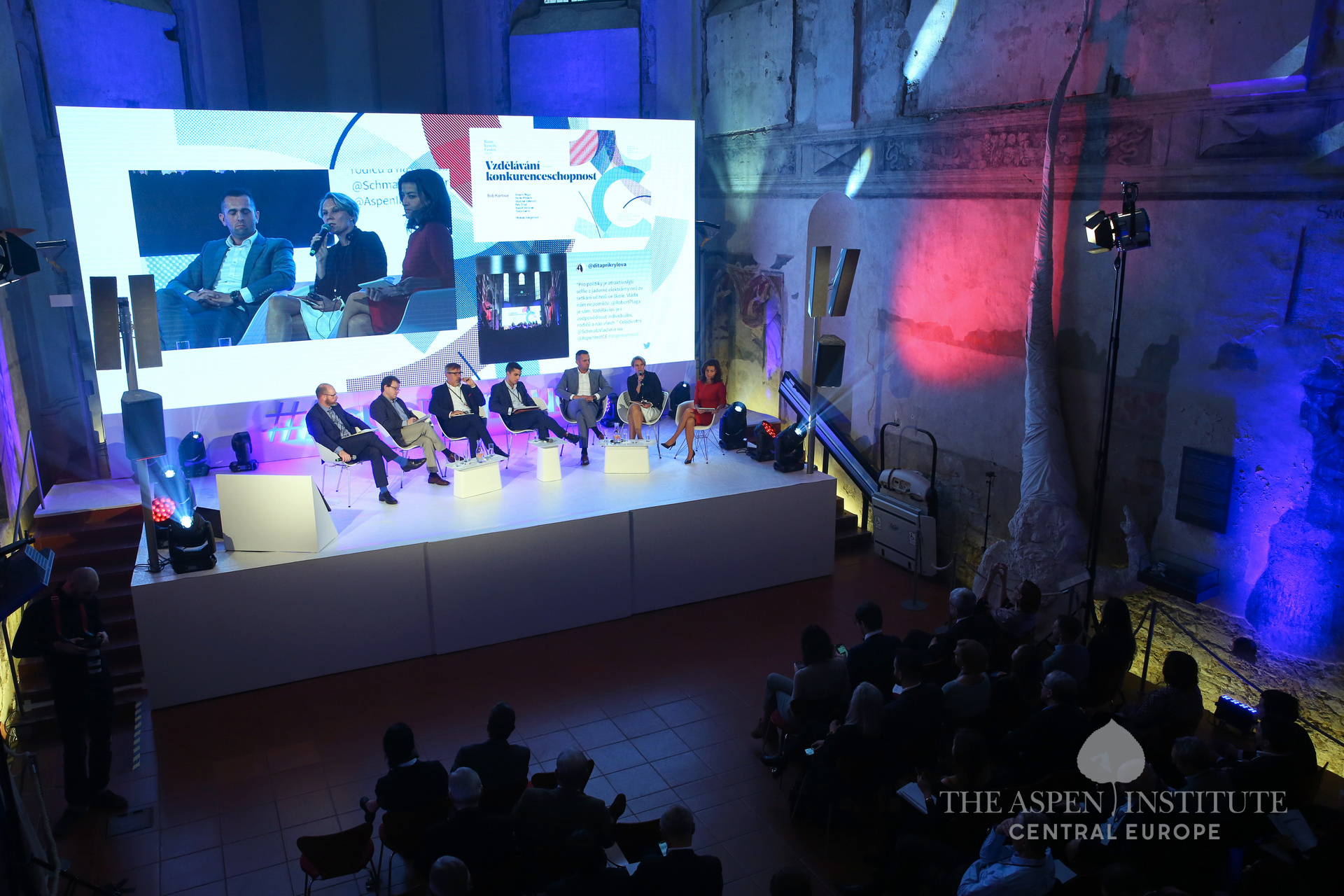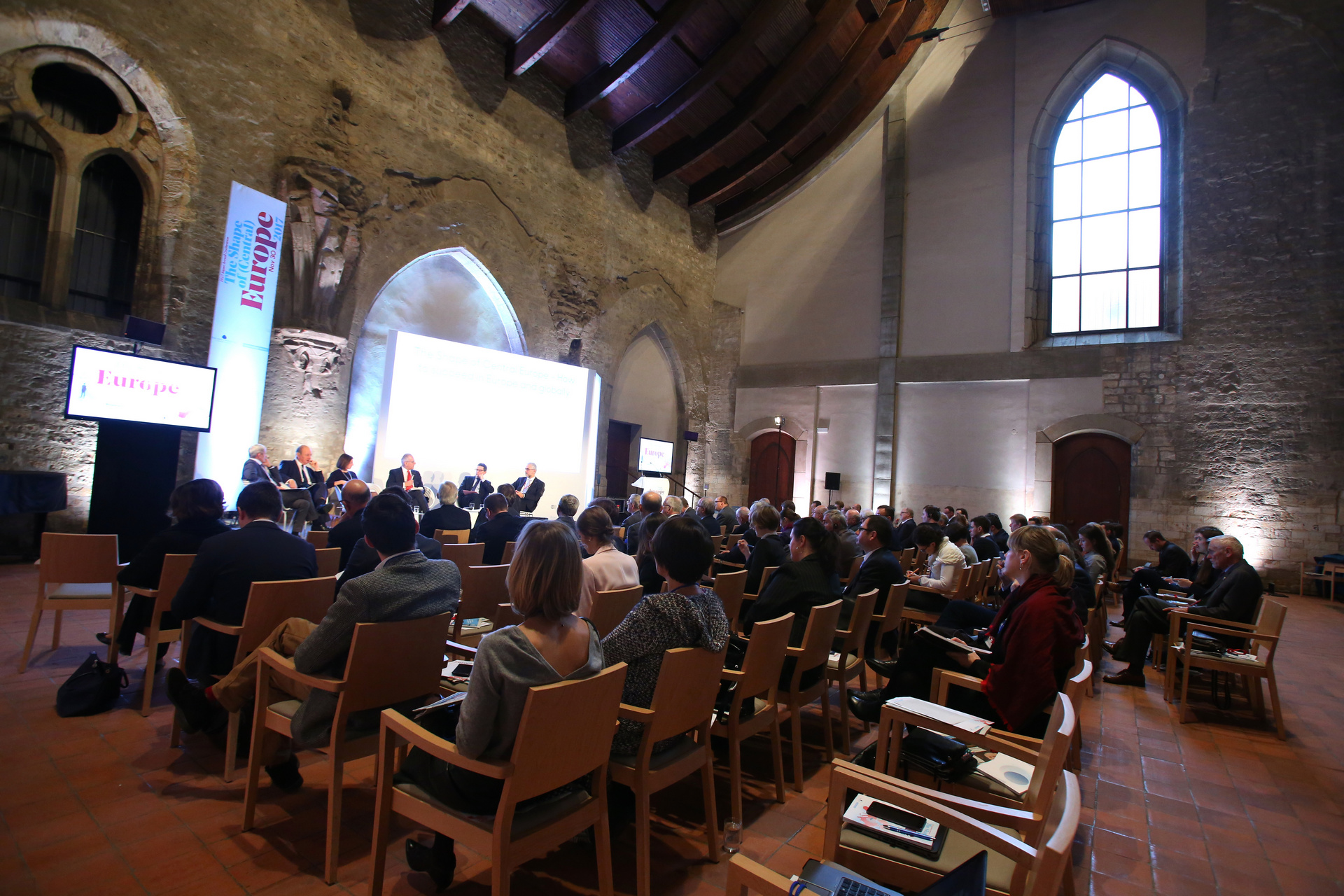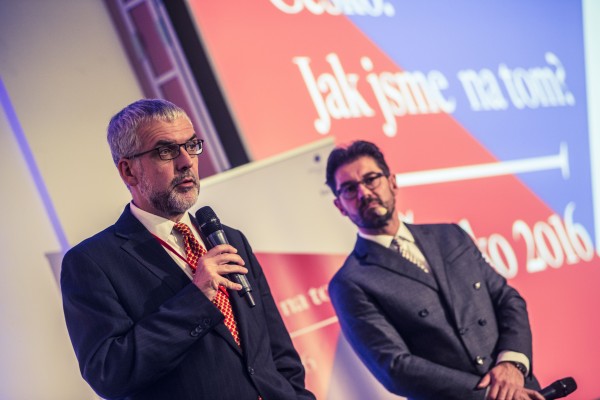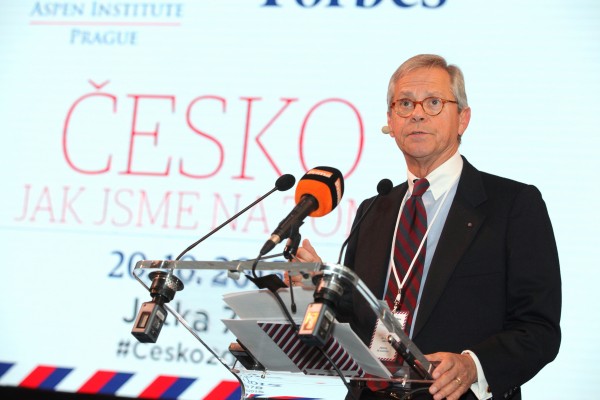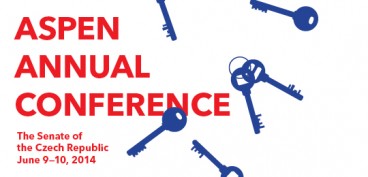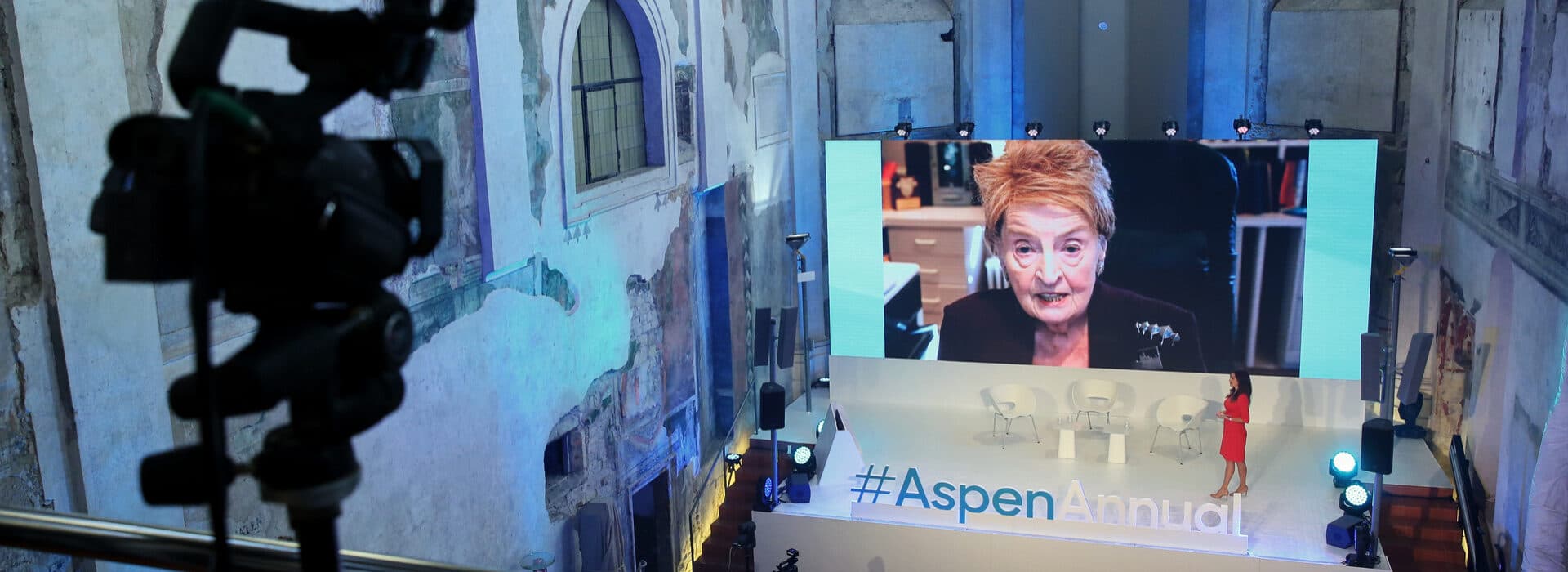
Aspen Annual Conference
The Aspen Annual Conference brings together transatlantic leaders to discuss key political, economic, and societal developments based on expert studies provided by our partners. We focus on topics that are relevant not only to current governments but also seek to foster broader consensus beyond a single election cycle. Open dialogue across our societies is the only way to overcome high polarization of opinions and stand united in support of Western values.
Participants can benefit from diverse perspectives on up-to-date topics such as values-based leadership in the context of new technologies, defense innovation, education, the digitalization of small businesses, and more. Experts from the business, academic, and non-profit sectors are traditionally joined by government officials on the conference panels.
Within its mission, Aspen Institute Central Europe brings together individuals who positively influence society and strives to support strategic thinking that that goes beyond local and sector-related boundaries. We cooperate with renowned consulting and research firms such as Boston Consulting Group, Data Ethics Lab, and PAQ Research on expert reports to build discussions on solid foundations. By hosting interdisciplinary policy and public debates, the Institute contributes to open dialogue on topics relevant to current society and its advancement.
The Aspen Annual Conference is one of the Institute’s flagship events, held since its founding in Prague in 2012. Over the years, it has brought many distinguished speakers, experts, business leaders, and politicians from various countries and continents to Prague. Notable speakers include Madeleine K. Albright, the 64th U.S. Secretary of State; Olena Zelenska, First Lady of Ukraine; Alexander Stubb, former Prime Minister and President of Finland; Petr Pavel, President of the Czech Republic; Andrej Kiska, former President of Slovakia; Toomas Hendrik Ilves, former President of Estonia; Petr Fiala, Prime Minister of the Czech Republic; Timothy Garton Ash, Professor at the University of Oxford; and Věra Jourová, Vice-President of the European Commission, among many others.
Relevant posts
